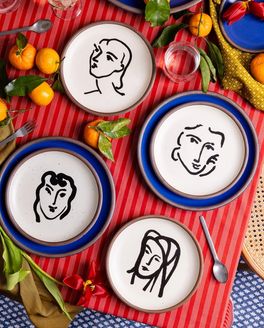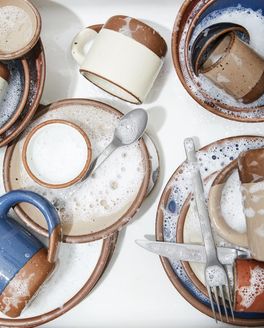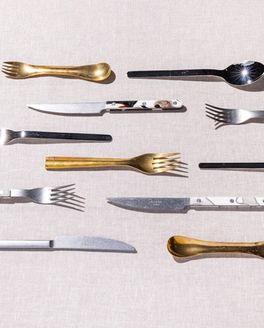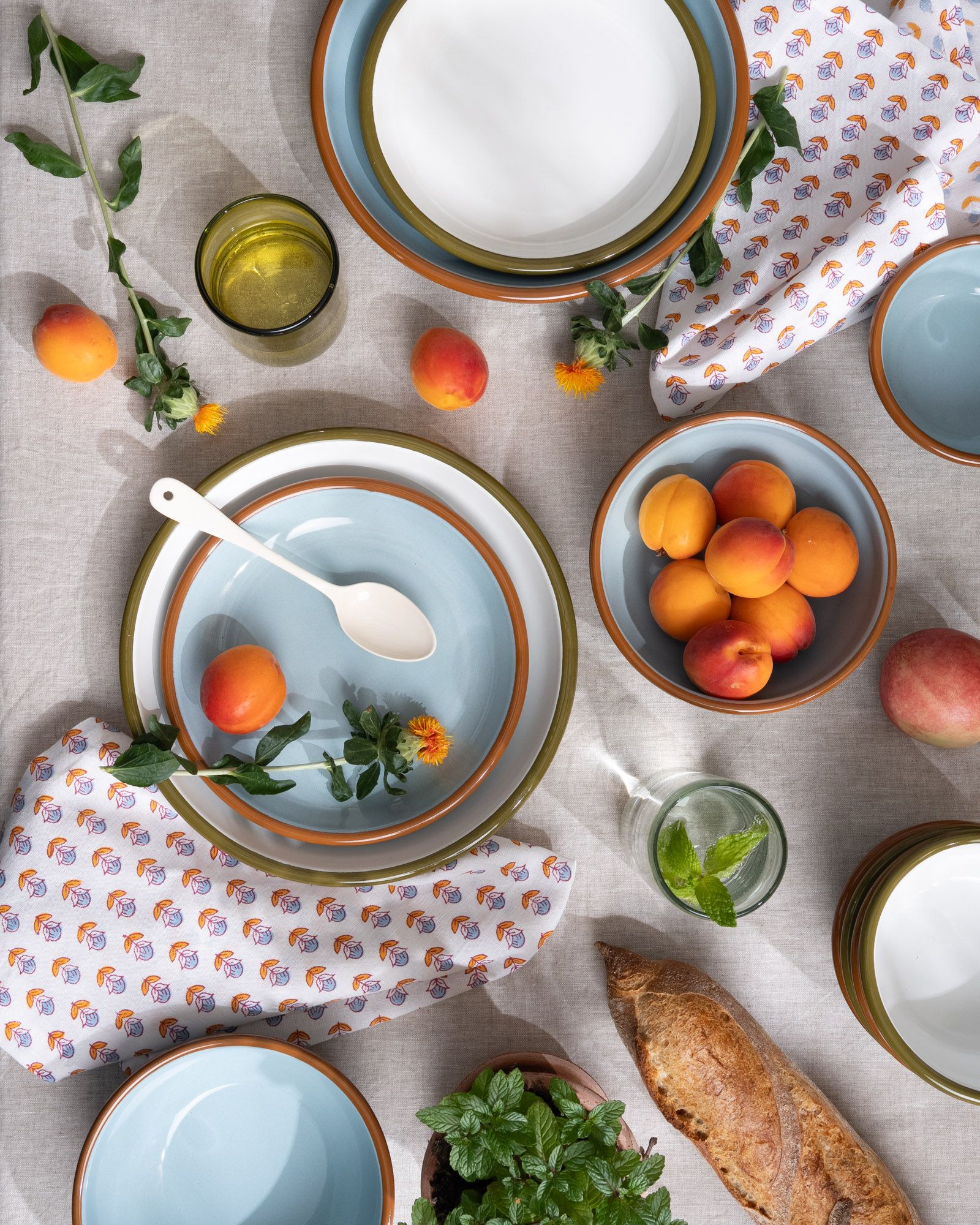
Caring for Your Pots: Enamelware
There’s a reason enamelware has stuck around for thousands of years. It’s practical, beautiful and a little bit old-school (in the best possible way). Made by fusing porcelain or glass to steel it’s lightweight but tough, which means it’s just as at home on a campsite as it is on your kitchen table. Around here, we pull it out for road trips, campfire dinners and the kind of meals where no one’s being precious about the dishes.
While enamelware doesn’t ask for much, a little extra care goes a long way. Here’s how to help yours last for the long haul.
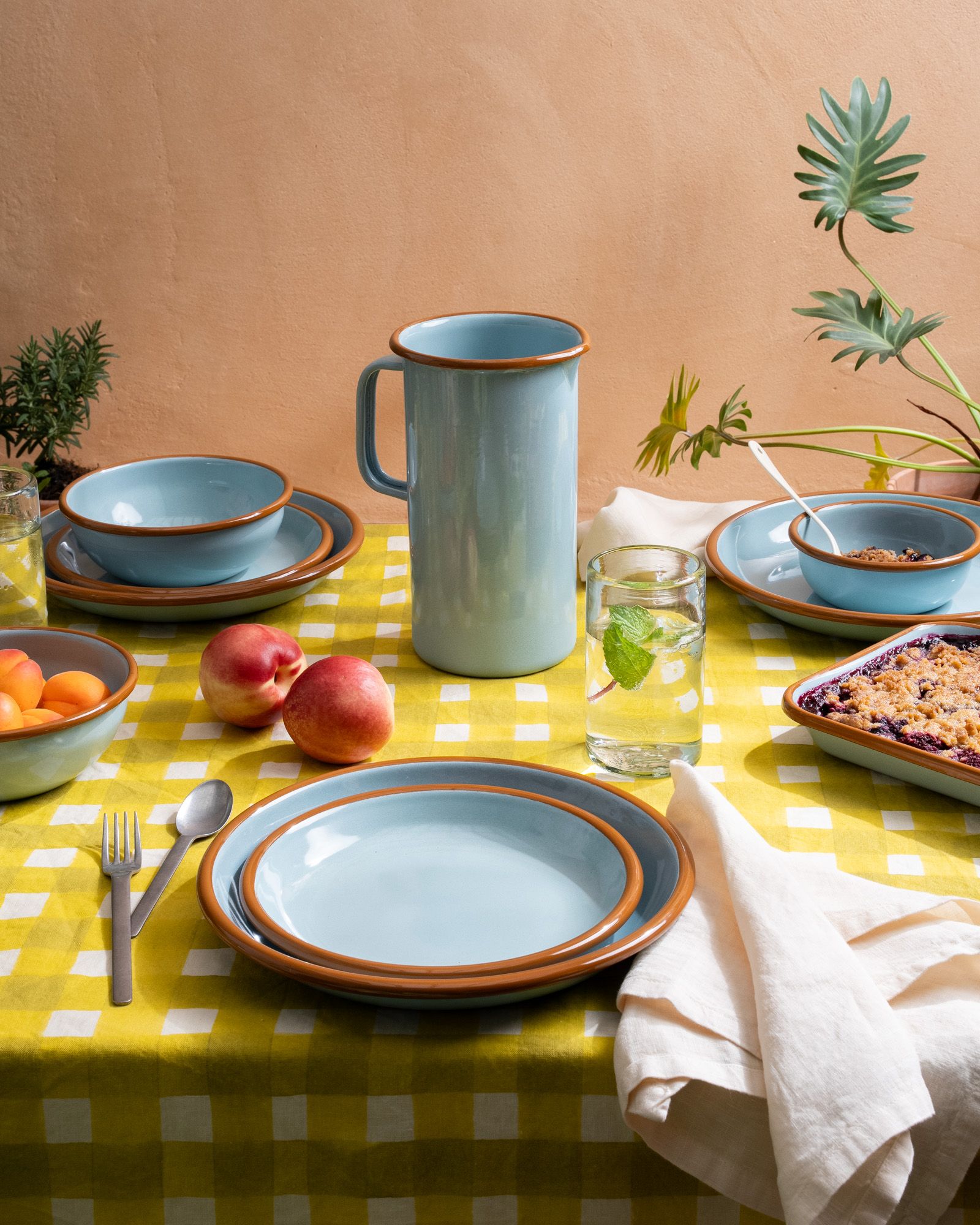
How It’s Made
Enamelware is made by fusing a layer of porcelain (aka glass) to metal at super high temperatures, resulting in a lightweight, food-safe and ultra-durable piece that’s naturally non-toxic, non-stick and built to last. Curious about that glossy finish everyone loves? That’s the porcelain coating, and it gives enamelware its signature smoothness, shine and color.
How We Use It
Enamelware was made for movement, which is why we tend to reach for it anytime we’re headed outdoors. We love bringing it along for beach picnics, serving up potato salad at backyard barbecues or setting the table for dinners under the stars. It’s also great for camping: super lightweight, stackable, easy to clean and far less breakable than ceramic.
That said, enamelware works just as well indoors. It transitions from table to dishwasher without fuss. Plus, we think it hits that just right mix of classic and casual.
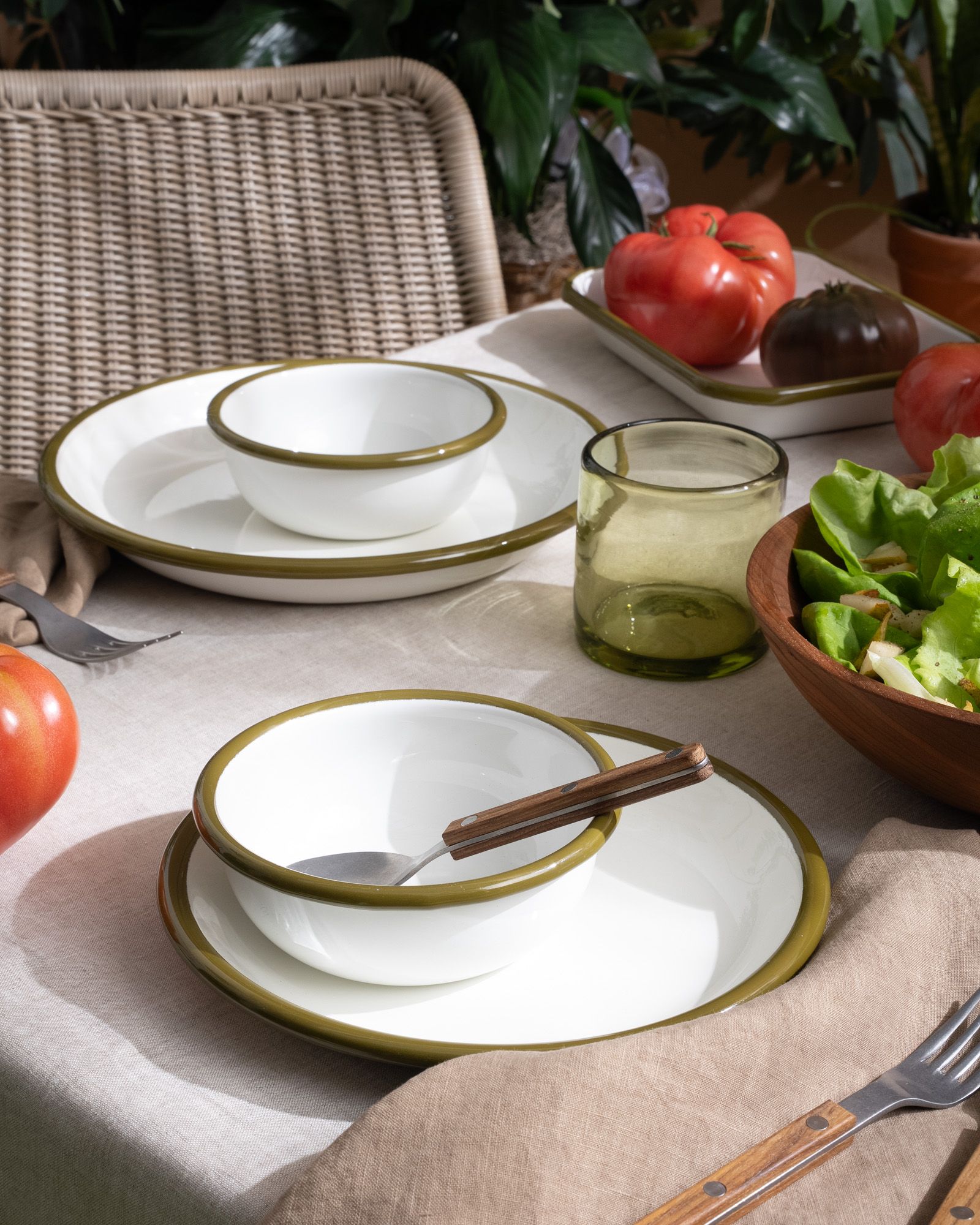
How to Clean It
If your enamelware starts showing signs of use like stains, or maybe the occasional stubborn mark, don’t worry. That’s totally normal, and usually pretty easy to handle. We recommend a soft sponge, warm water and a gentle cleaner like Bar Keeper’s Friend or baking soda paste. Skip anything abrasive (no steel wool, no scouring pads) and you’ll be just fine.
How to Care For It
Enamelware’s tough, but not invincible, and it will pick up some scratches with heavy use over time. But those little scuffs? Purely cosmetic. The steel underneath is strong and steady. If you want to keep it looking fresh, reach for wooden or silicone utensils and go easy when stacking (a soft cloth or tea towel between pieces works wonders).
Chipped it? That happens. If you drop it just right (or just wrong), the porcelain might give way to a little exposed steel. But don’t worry, it’s still safe to use and eat off. If it really bugs you, seal it up with a food-safe epoxy. Or, give it a second life as your go-to popcorn bowl or catch-all for keys and mail. Imperfect things are often the best ones.
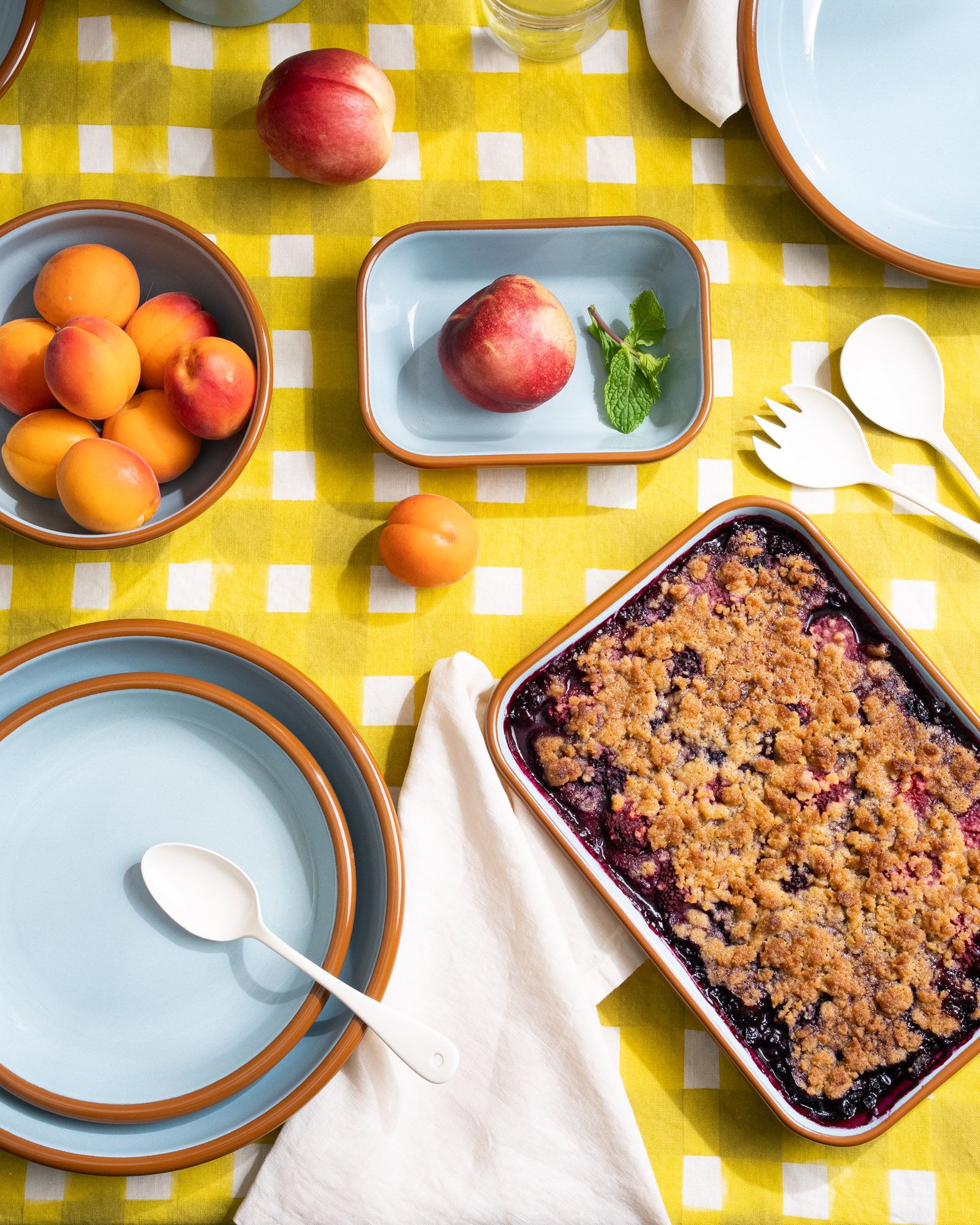
We love enamelware because it doesn’t ask for much: use it, enjoy it, clean it kindly, and it’ll be with you for a long time. Whether it’s packed in your picnic basket or waiting on a shelf for your next slow morning, this is one of those pieces that has a place in every kitchen.
